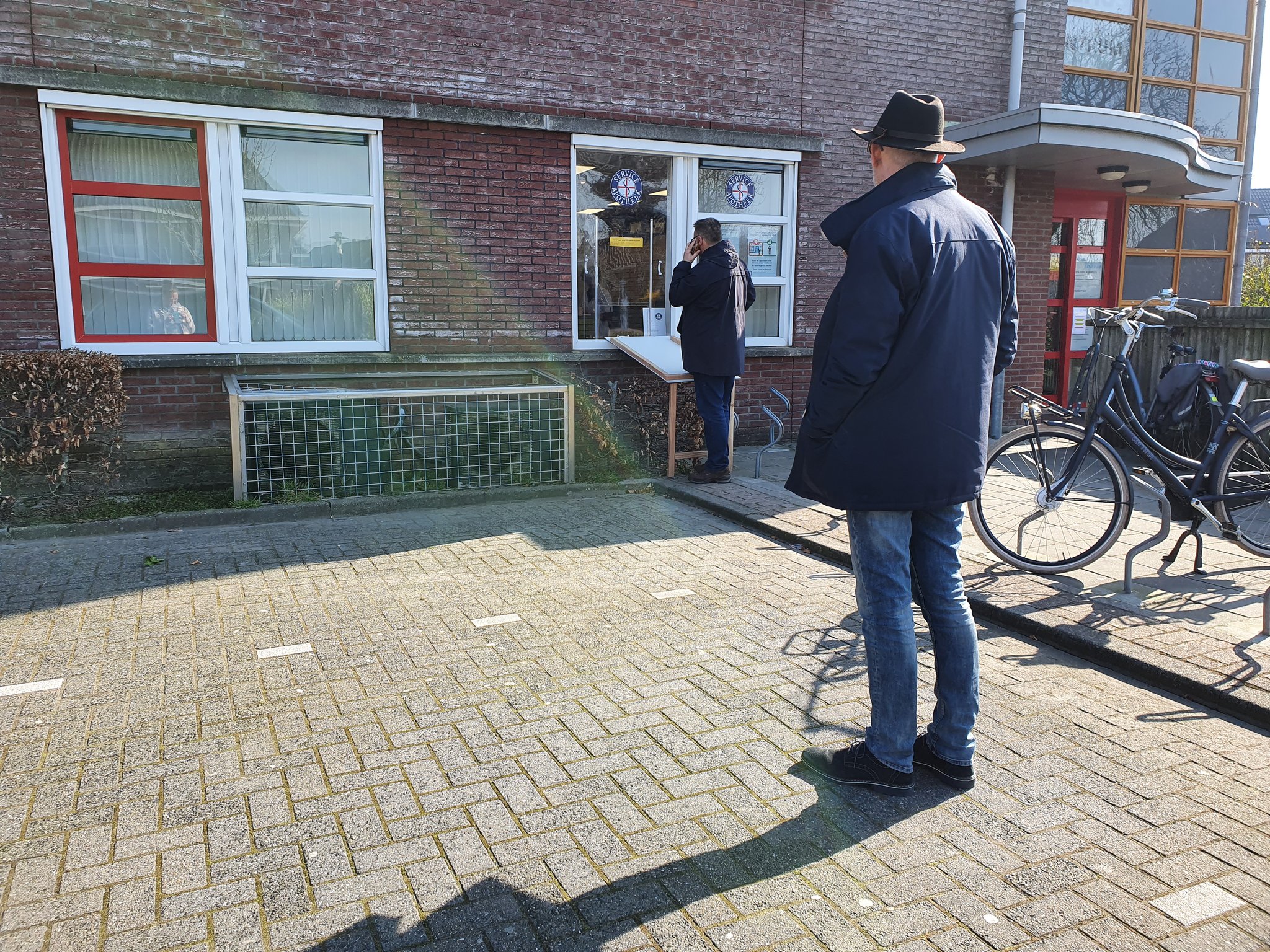The corona crisis is forcing us to change our behaviour. Caspar Chorus (TPM) sees that it is not morals that are determining our behaviour, but the other way around.
In times of crisis, citizens must take responsibility and do the right thing. (Foto: @nietdomblond via Twitter)
Over the past few weeks – and months in China – it has become clear that the coronavirus is generating a flurry of moral challenges for human decision-makers to solve. From panic buying and social distancing to triage and determining the monetary ‘value’ of a human life. Citizens, health professionals and politicians around the globe are facing decisions whose moral salience make them qualitatively different from the average types of choices most of us make in our daily lives.
What insights can we draw from academic research into moral decision making to help us navigate the storm? I will draw on my team’s publicly funded (by the European Research Council) work on this topic in an attempt to contribute to the public understanding of the important moral dimensions of the decision we take during the corona crisis.
Moral values do not influence moral decisions
The current crisis demands that individuals make personal sacrifices for the greater social good. We are asked to not hoard toilet paper so that others don’t face empty shelves and healthy citizens are asked to stay at home and practice social distancing to avoid spreading the virus to vulnerable people and overwhelming our health-care system. As expected, behavioural responses vary widely, ranging from careless, or even anti-social behaviours, to many acts of prudency and care.
An often-heard opinion is that this range of responses reflects the range of moral values: there are people who value fairness, care, and loyalty, and there are people who do not. The former behave, the latter don’t. But things are not that easy. Research carried out by our team empirically shows that the conversion of moral values into concrete moral actions is virtually non-existent and is rarely detected in data about human choice behaviour.
Disruption lurks at each stage of the causal chain between values and actions
Why is that? Moral psychologists have long argued that before a moral value, such as fairness or loyalty, can lead to a concrete moral action, several conditions must be met. First, decision-makers must be aware that an endorsed moral value is at stake in a particular situation; second, they must make the moral judgement that this value actually requires them to choose a certain action; third, they must then decide to act in the way prescribed by their value; and finally they have to actually enact their decision.
In the context of a range of decisions with a moral dimension, our empirical research shows that this road from deep-seated moral values to concrete moral actions is long and windy indeed. Disruption lurks at each stage of the causal chain between values and actions. Just think of the roles of: emotion and fear, misinformation, social pressure – my best friends are going to the pub, so I have to join them; conflicting moral values – my family needs toilet paper and it is my moral duty to provide for them; and rational expectations – if everyone starts hoarding, then hoarding is the rational thing for me to do too.
As a result, we were not surprised to find that the empirical correlation between someone’s moral decisions and their moral values is very low. In other words, don’t be surprised if many of the people hoarding toilet paper or flouting social distancing advice strongly endorse values such as fairness, care, and loyalty.
From deeds to morals
What can governments do to ensure citizens behave according to moral values such as fairness, care, and loyalty? Actually, most governments have been fairly effective in this regard: they explicitly target the steps in the causal chain described above. Take the Dutch Government: our Prime Minister has repeatedly and forcefully argued that: moral values are at stake (raising moral awareness); there is no doubt as to what the right thing to do is (making a moral judgment); and citizens must take responsibility and actually do the right thing (calling for moral action). When even these ‘decision aids’ did not lead to full compliance, most governments resorted to stronger measures such as punishment of anti-social behaviours through fines.
Altogether, it seems that this mix of actions has in turn established a strong moral norm in society, especially regarding social-distancing, which seems to work in terms of ‘flattening the curve’. This is one of the nice by-products of forcefully establishing moral behaviours: once they are in place, the underlying attitudes or moral values will change accordingly. Similar results have been found in the context of racism and school segregation in the American South. Only after the Government forced schools to integrate, did moral norms regarding racism start to gradually change as a consequence of people of different ethnicities meeting each other in the classroom. Our research shows that this reverse effect – that is, concrete behaviour influencing values – is actually stronger than the commonly considered effect of moral value influencing concrete behaviours. A positive reinforcement cycle thus seems to be emerging now, partly due to the forceful and determined action of governments.
- Prof. Casper Chorus is professor of choice behavior modeling, and head of the Engineering Systems & Services department at the Faculty of Technology, Policy and Management. Chorus’ full article can be read on the TPM website



Comments are closed.